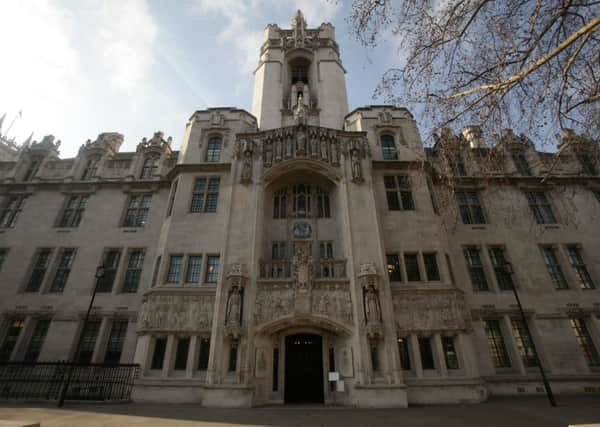Analysis: Holyrood will not win veto in complex Brexit contest


The government argues that the royal prerogative power to conduct foreign affairs, including to make and break treaties, extends to the UK’s membership of the EU treaties.
The claimants argue (and the High Court agreed) that as a general rule the prerogative cannot be used to change domestic law, that leaving the EU would have that effect, and that the European Communities Act 1972 should therefore be read as removing the government’s power to withdraw from the EU.
Advertisement
Hide AdAdvertisement
Hide AdThe UK government’s counter is that the prerogative has been used to agree many changes to EU law which have had a direct impact on domestic law. But neither side disputes that parliament at Westminster could limit the relevant prerogative power, as it has many other powers over the centuries.
The argument is whether it has actually done so.
The Lord Advocate is intervening in the case to argue that the prerogative cannot be used because, among other reasons, triggering Article 50 would result in the law in devolved areas being changed and in the competence of the Scottish Parliament and responsibilities of the Scottish Government being altered, contrary to the constitutional convention that the UK Parliament will not normally do such things without the Scottish Parliament’s consent.
The UK government disagrees, and argues that the Court should not even consider the issue as it is not relevant to the claimants’ case. Given the political sensitivities this approach may tempt the Court, as long as it is content that the right answer can be reached on other grounds.
However, the government also raises the general principle that conventions are not justiciable (ie legally enforceable). While part of the consent convention was added to the Scotland Act 1998 earlier this year (as section 28(8)), it says that “it is recognised that” the UK Parliament will not “normally” legislate on devolved matters without consent.
The UK government argues that that wording shows Parliament was merely recognising the existence of the convention, not giving the courts any authority to decide whether consent should be sought.
This reflects the strong constitutional principle that an Act of Parliament cannot be invalidated because its passage did not comply with a procedural or even constitutional requirement.
This is recognised by the Lord Advocate in his written case, which says that “if the UK Parliament were to choose to pass an Act of Parliament without the consent of the Scottish Parliament, the courts could not decline to recognise the validity of the resulting Act”.
This is consistent with section 28(7) of the Scotland Act, which confirms that the UK Parliament retains the power to make laws for Scotland. The Lord Advocate is therefore not asking the Supreme Court to declare that legislation authorising Article 50 would require the Scottish Parliament’s consent.
Advertisement
Hide AdAdvertisement
Hide AdSuggestions that the case might result in the Scottish Parliament being able to “veto” Brexit are incorrect.
Instead, the Lord Advocate will encourage the Supreme Court simply to declare that the legislative consent convention would be engaged.
If the Court is willing to do that, it would then be politically difficult for the UK Parliament to proceed without asking for consent, or despite a refusal of consent.
To get there, however, the Court would have to decide not only that the issue is justiciable and relevant, but also that consent would be required under the convention.
While conceding that the legislation would relate to the reserved matter of foreign affairs, the Lord Advocate argues the convention would be triggered because of the effects on devolved matters, and the fact that the Scottish Parliament’s competence would no longer be limited by EU law. The UK government argues the contrary.
If we do not get an answer on that, but the Supreme Court does decide that legislation is required, the argument about consent will not disappear. Rather, it will continue into the political arena where constitutional conventions are traditionally policed.
Charles Livingstone is a partner in the public law and regulatory team at Brodies LLP